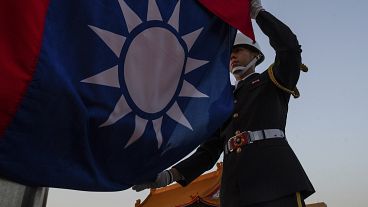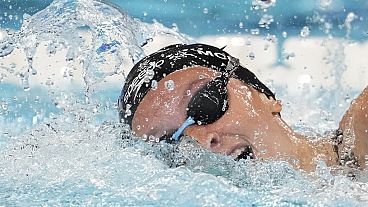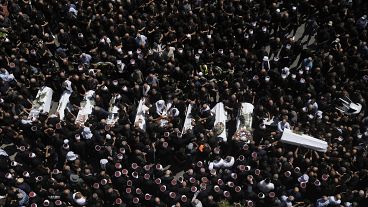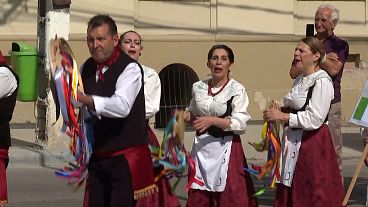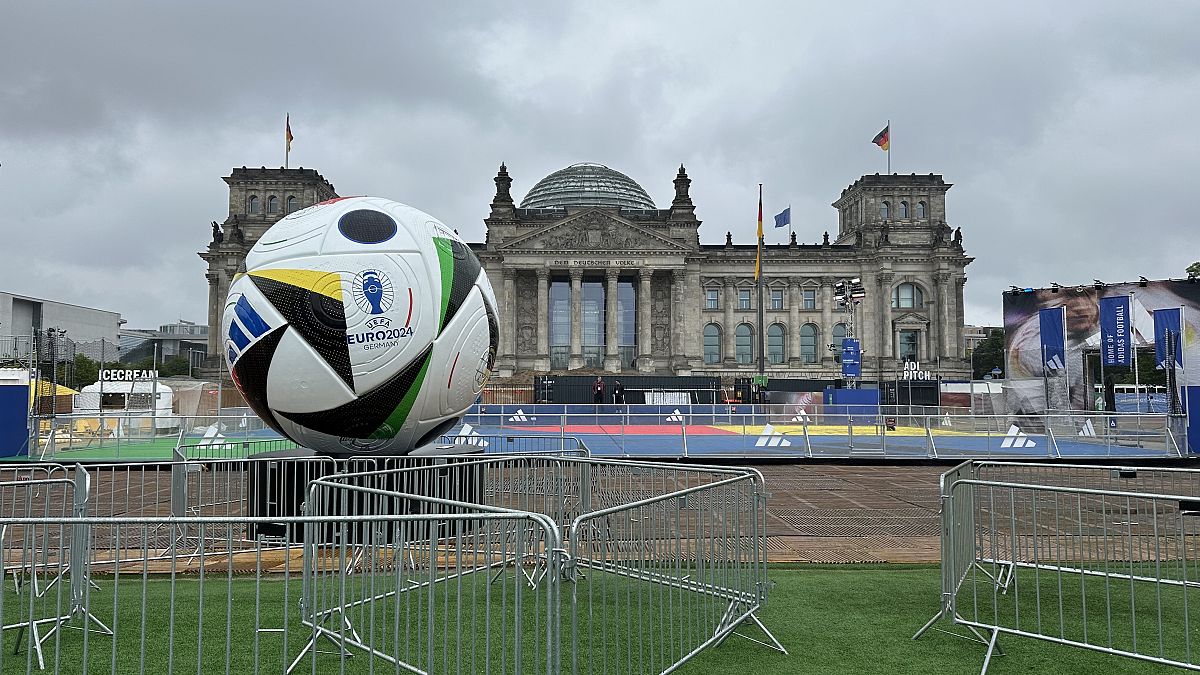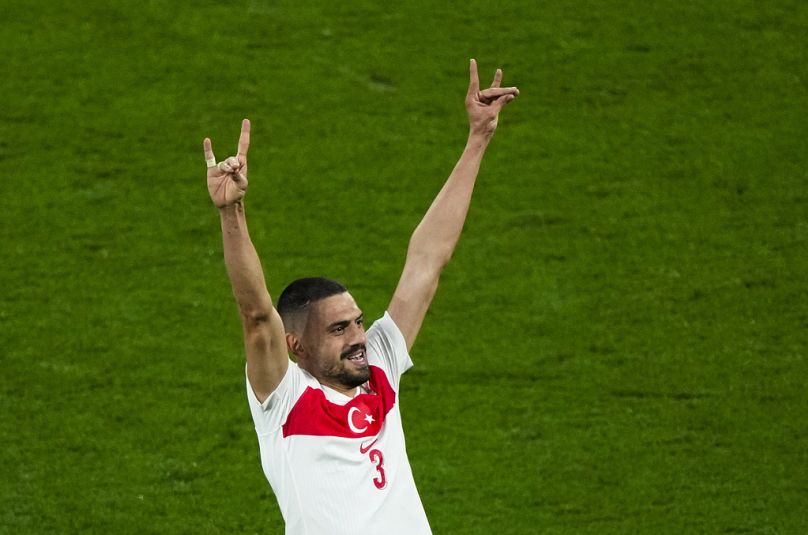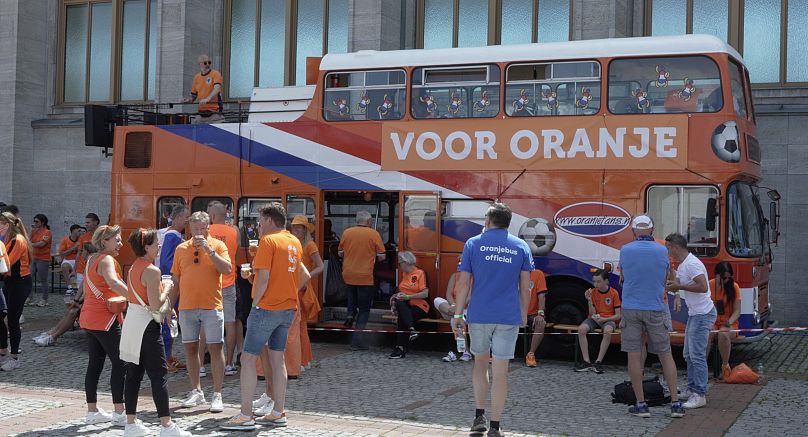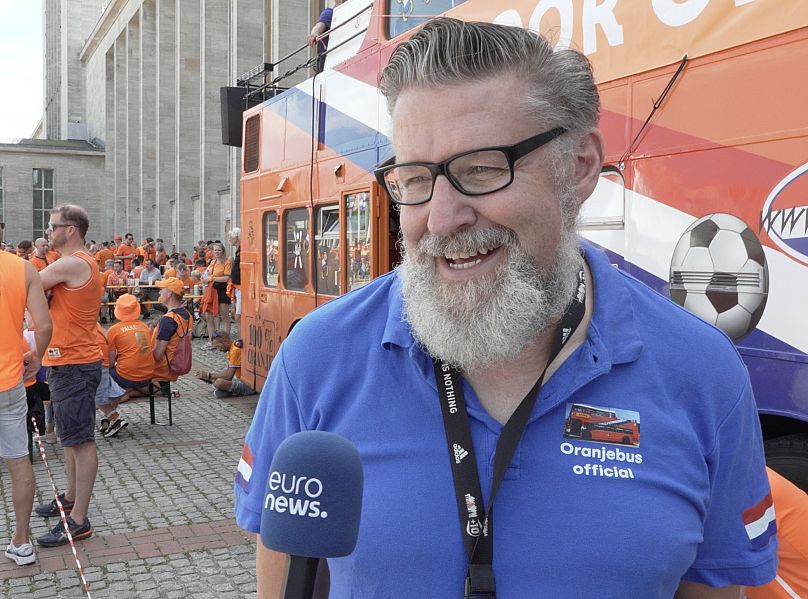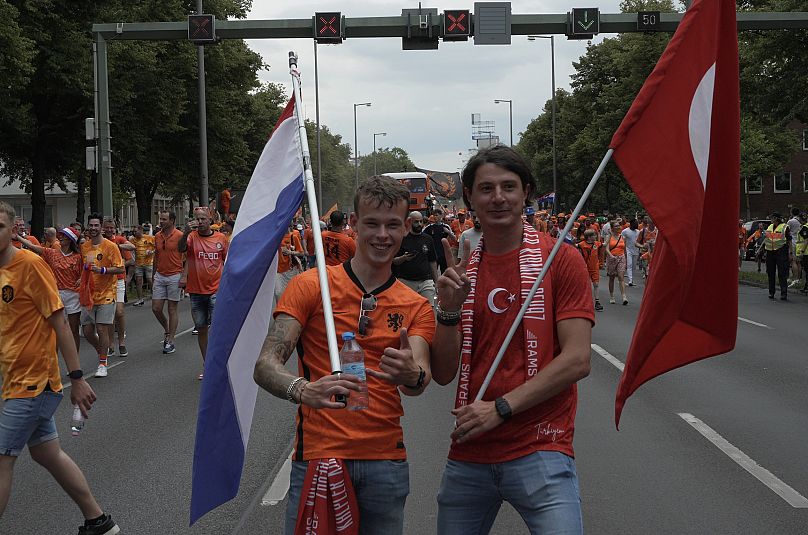A tournament of passion, controversy, and unity. From fan celebrations to societal tensions, football shows its power to inspire and divide.
Throughout the Euros, episodes of nationalist behaviour marred several matches across Germany. Nationalism in football can manifest in radical and divisive ways, often reflecting larger societal tensions and being exacerbated by political groups and fan culture.
Hungarian and German supporters faced allegations of displaying Nazi salutes, while Turkish fans in German cities were observed using the Grey Wolves salute — a symbol associated with Turkish nationalism.
In Dortmund, Albanian and Turkish supporters waved a 'Greater Albania' flag. A photo of German fans buying football jerseys with the number '44' went viral after the media pointed out its resemblance to the insignia of the infamous Nazi German SS units. Adidas later prohibited football jerseys with the number '44', alongside the previously banned '88'.
Croatian and Serbian fans clashed over historical and political symbols, with accusations of hate speech and provocative gestures. Austrian fans also stirred controversy by unveiling a banner with the slogan 'Defend Europe', linked to the far-right 'Identitarian Movement' known for its anti-immigrant stance.
Several incidents prompted UEFA to sanction players and renew calls for stricter measures against nationalist expressions during football events.
Tensions peaked when Austria faced Turkey, where Austrian fans reportedly chanted nationalist slogans.
Following Turkey’s 2-1 victory on 2 July, Turkish centre-back Merih Demiral raised both arms in a Grey Wolves salute, intensifying the tournament’s controversy surrounding nationalist sentiments.
The gesture — involving the middle and ring fingers held down with the thumb —symbolises an ultranationalist movement in Turkey associated with extremism, racism, and violence. While not universally banned, its use drew criticism from German authorities and led to Demiral's two-game suspension.
Demiral defended his actions as a proud expression of Turkish identity.
National pride or nationalism?
“The salute, associated with ultranationalist sentiments and extremist groups like the Grey Wolves, has a historical link to acts of violence and intolerance," a Turkish researcher who spoke on condition of anonymity due to safety concerns told Euronews.
"Despite claims of it being a symbol of Turkish pride, its association with atrocities and right-wing nationalism cannot be overlooked. Those defending the salute often overlook its darker implications and historical context, including its use during massacres and attacks,” they added.
Critics argue that such gestures perpetuate divisions and promote exclusionary nationalism. Moreover, the defence of the salute by individuals aligned with ostensibly left-leaning parties like the CHP (Republican People’s Party) highlights contradictions within Turkish politics, where nationalist sentiments can transcend party lines.
According to the researcher, the controversy underscores broader societal tensions in Turkey over identity, nationalism, and the legacy of political ideologies like Kemalism (also known as Atatürkism), which, despite secular aspirations, have also perpetuated xenophobic and exclusionary attitudes.
Ahead of Turkey’s quarter-final match against the Netherlands last weekend, the Turkish fans' march in Berlin has been dispersed by the police due to the portrayal of the gesture of many fans.
The fans, who had tickets for the match, were afterwards encouraged to make their way to the stadium, where they were met by thousands of Dutch fans.
'Naar links! Naar rechts!'
In more positive celebrations, Dutch fans are making waves on social media with their enthusiastic dancing to the Dutch party anthem 'Links Rechts' by Snollebollekes.
Euronews interviewed Henk van Beek, President of the Oranje Bus, a distinctive orange double-decker purchased in 2004 to travel to the Euros in Portugal. Since then, the bus has accompanied Dutch supporters to every tournament, including far-flung destinations like Qatar and Brazil.
According to van Beek, the bus wasn’t initially intended for fan marches when purchased two decades ago.
“Originally, it was just for friends — to park in city centres, play music, and see what happens. We thought it might last six or eight years,” he explained.
“Instead, it’s been with us for every major Dutch national team tournament since 2004, even requiring us to retrieve it from harbours in countries like Qatar and Brazil where we played,” he added.
Online, Dutch fans have captured attention with their synchronised dancing, fuelled by the song “Links Rechts,” which originally debuted in 2015.
According to Henk van Beek, President of the Oranje Bus, the anthem gained momentum during a 2016 away match in Sweden, where 600 supporters rallied behind the bus. “Its popularity surged further during the 2017 European Cup for women in the Netherlands, coinciding with the Dutch team’s victory,” he noted.
“We played it in all six cities during the tournament, and it became an instant hit. It’s now a staple every time we gather, and we’ve seen it grow alongside Dutch fans’ enthusiasm”, he said.
Van Beek, who also DJs during fan marches, shared, “Besides ‘Links Rechts,’ I often play another beloved Dutch song from 1988, ‘Wij houden van Oranje.’ These songs embody our passion for the colour orange,” he told Euronews.
Four weeks of escapism?
When reflecting on football tournaments, many Germans fondly recall the “summer fairytale” of 2006, when the nation rallied in front of screens to watch the men's World Cup, which sent Germany all the way to the semifinals.
Under the banner 'the world as a guest at a friend’s home', the atmosphere felt idyllic, if only for a fleeting month in 2006. However, since then, this cherished the 'Sommermärchen' has been marred by corruption allegations, casting a shadow over the integrity of the hosting decision due to suspicions of improper payments.
Football tournaments like the Euros and the World Cup offer fans a brief reprieve from reality, providing a form of escapism. Therefore, it came as no surprise that expectations were high leading up to this year’s Euros, with hopes of experiencing a second summer fairytale — 'Sommermärchen 2.0'.
Has the tournament delivered on these hopes? According to van Beek, yes. “In these turbulent times, I hope this tournament has brought people closer together,” he said.
Amidst instances of nationalism, the tournament also sparked joy, excitement and camaraderie, with Europeans forging new friendships.
The positive atmosphere was so infectious that some fans even switched allegiances, donning jerseys of other countries after their own team was eliminated. Football seems to have managed to unite the Europeans a little — even if only for four weeks — people have made friends and experienced their own personal summer fairy tale 2024.

